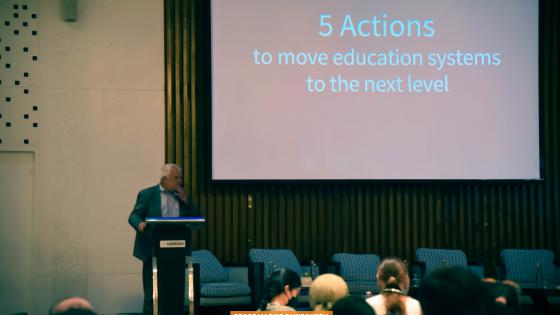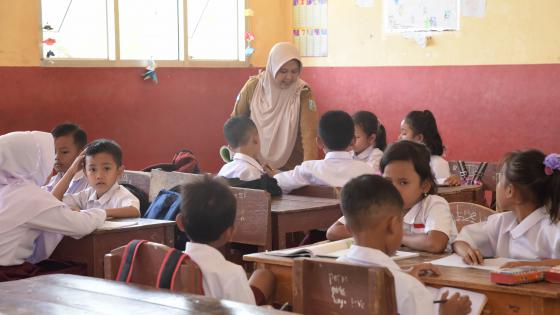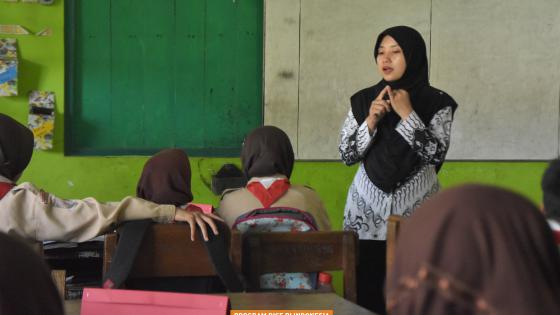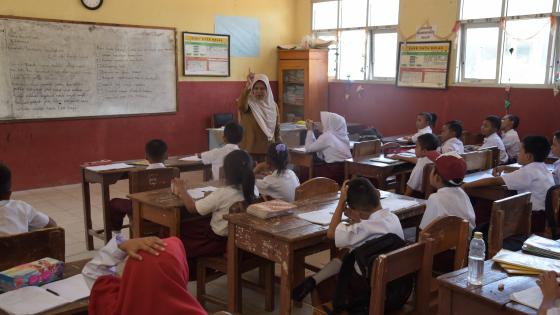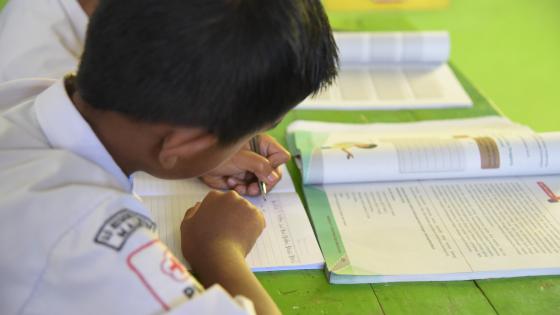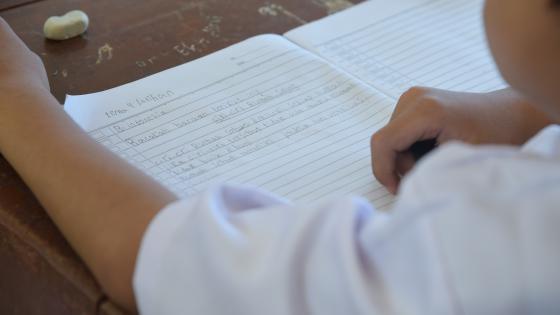Illustration: Tony Liong
The focus of Reform Area B is to understand the innovation of education policies in the districts. To achieve this goal, RISE would have to work closely with local governments whose districts are chosen to be research locations or learning laboratories for a minimum of three years—until 2022—to design, evaluate, and adapt their policies so as more effective in improving the quality of education.
The process of choosing the learning laboratories went through a number of stages, which began from October 2017 to April 2018. First, RISE team analysed data on the scores of the junior secondary school’s National Examination (UN) and National Examination Integrity Index (IIUN), as well as the socio-economic conditions of the districts from Susenas—all at the district level—in the 2010–2015 period. The analysis aimed to find districts that have high average UN scores and/or whose UN average scores have increased during that period. Based on the two stated criteria, 64 districts were then included in the next stage: further examined through phone survey.
The purpose of the phone survey was to map the education innovations applied in the districts. Some of the information collected at this stage was the education innovations implemented by the districts, especially those related to teachers, such as teacher recruitment and deployment; pre-service teacher professional education; in-service teacher professional development; and teacher payment, both based on performance and not based on performance. Out of the 64 districts contacted, 23 responded and were successfully recorded. To further understand about the innovations practiced in the 23 districts, RISE team conducted media-tracking.
Next, the team ranked the 23 districts based on the number of innovations recorded in each district. The top nine districts were selected as areas that are potential to explore for research collaboration with RISE. The team then sorted the nine districts based on a number of considerations, such as school and student population, urban and rural representation, region/island representation, and the type of innovation in the districts (not focusing solely on teacher incentives, and whether the innovation is appealing for further research).
The selection process generated four prospective learning laboratories: Districts of Way Kanan, Yogyakarta, Kebumen, and Bukittinggi.
In April to May 2018, the RISE team conducted hearings with local governments and stakeholders in the education sector in the four selected districts to explore opportunities for research collaboration. After intensive communication with a number of government officials in all four districts, RISE Programme in Indonesia successfully established partnership, which was ratified through the signing of Memorandum of Understanding, with the District Governments of Way Kanan, Yogyakarta, Kebumen, and Bukittinggi.


